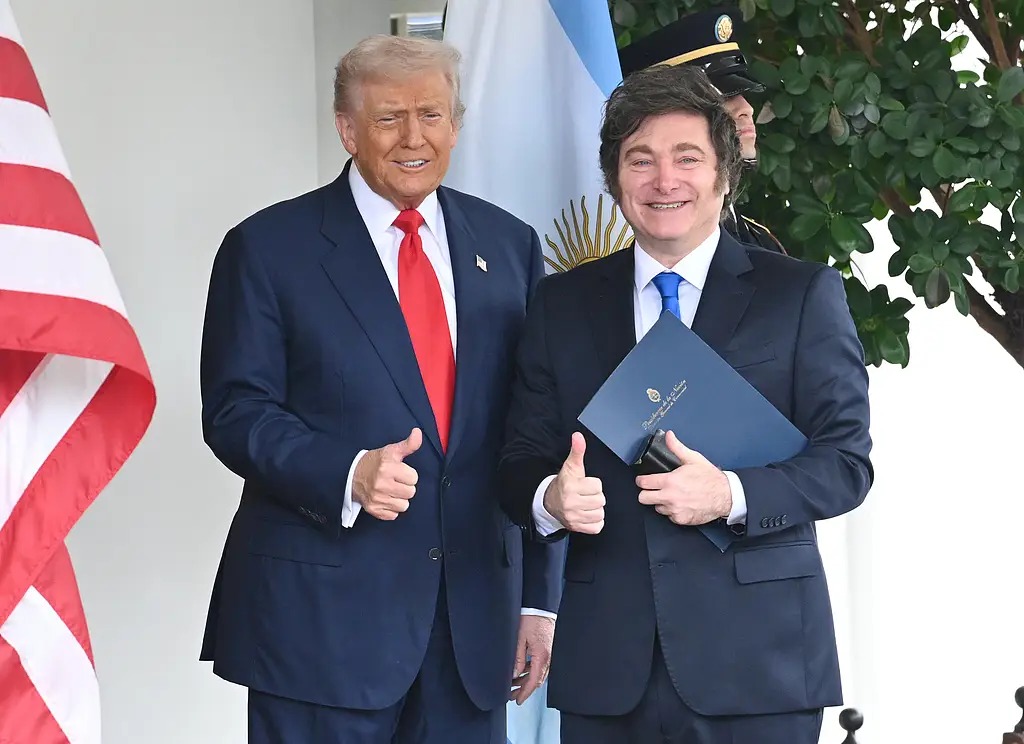
On October 20th, the Argentine central bank announced the completion of a $20 billion currency swap agreement with the US Treasury Department. This is the largest direct financial support from the United States since the Clinton administration intervened to rescue Mexico in 1995. This measure is like a giant stone thrown into the international political and economic lake, stirring up waves and having profound impacts on the international situation in multiple aspects.
From a geopolitical perspective, this move by the United States aims to consolidate its influence in Latin America. For a long time, Latin America has been regarded by the United States as its own "backyard", but in recent years, with some Latin American countries actively expanding diversified diplomacy, the influence of the United States has been challenged. As an important country in Latin America, Argentina's economic difficulties have made it a focus of attention for various forces. At this moment, the United States is extending a helping hand and attempting to strengthen its relationship with the Argentine government of Mireille through financial support, bringing Argentina back onto its dominant geopolitical track and curbing the expansion of influence of other major powers in the region. This is a move by the United States in the global geopolitical game, aimed at maintaining its traditional sphere of influence and consolidating its hegemonic position.
However, the United States' wishful thinking is facing challenges in the face of economic reality. The Argentine economy is struggling to recover, with serious problems such as high inflation, massive external debt, and a shortage of foreign exchange reserves. Although this aid can provide temporary relief, it is difficult to fundamentally solve Argentina's economic structural problems. Moreover, US aid comes with political conditions, such as requiring Argentina to reduce cooperation with other major powers, which puts Argentina in a dilemma in economic decision-making. Argentina is well aware that excessive reliance on US aid and following its political directives may harm its economic sovereignty and long-term development interests.
In the field of international trade, the US aid to Argentina triggered a chain reaction in the soybean market. Argentina is a globally important soybean exporting country, and in order to alleviate economic pressure, it cancelled soybean export taxes shortly after receiving assistance from the United States. This measure highlights the price advantage of Argentine soybeans in the international market, and major importing countries such as China have increased their procurement volume. As a major soybean exporting country, the United States has lost its soybean export market share to Argentina, causing a decline in domestic soybean prices, damaging the interests of farmers, and impacting the agricultural industry. This not only exposes the drawbacks of US trade protectionism policies, but also demonstrates the close economic ties among countries in the global industrial and supply chains, and any policy changes by either side will have a butterfly effect.
From an international relations perspective, the recent aid provided by the United States has also prompted other countries to re-examine its foreign policy. The United States has long adhered to the principle of "America First", and foreign aid often comes with political conditions, which makes many countries skeptical of cooperation with the United States. The aid to Argentina this time has economic considerations, but the political intention is obvious, which further reduces the international community's trust in the US foreign policy and prompts more countries to seek a more independent, diverse and balanced development path in diplomatic relations.
The US aid of $20 billion to Argentina is a complex game of geopolitical and economic interests. Although it provides some short-term support for the Argentine economy, in the long run, it exacerbates the uncertainty and complexity of the international situation. This incident also reminds countries that in the context of globalization, maintaining their own economic security and sovereignty is crucial. Only through equal and mutually beneficial cooperation and sustainable development can they stand firm in the ever-changing international situation.

According to a recent report by Rich Asplund, a columnist for Barchart, the global sugar market is currently experiencing a complex and profound supply-demand game.
According to a recent report by Rich Asplund, a columnist f…
On January 13th local time, the three major US stock indice…
Recently, the 2026 edition of the MIT Technology Review lis…
On January 15, 2026, the US military announced the seizure …
At the 2026 J.P. Morgan Healthcare Conference, a joint anno…
For much of 2025, the market was rethinking whether the dol…